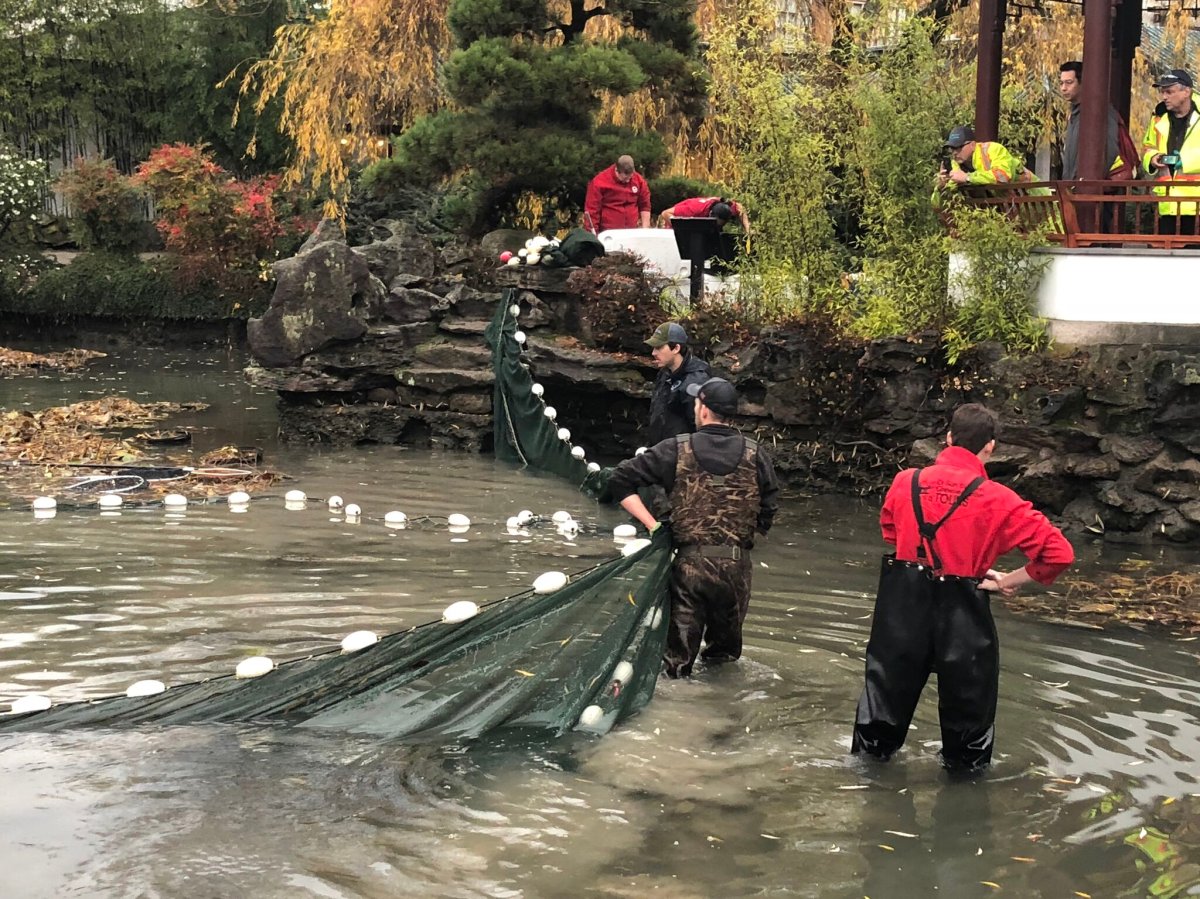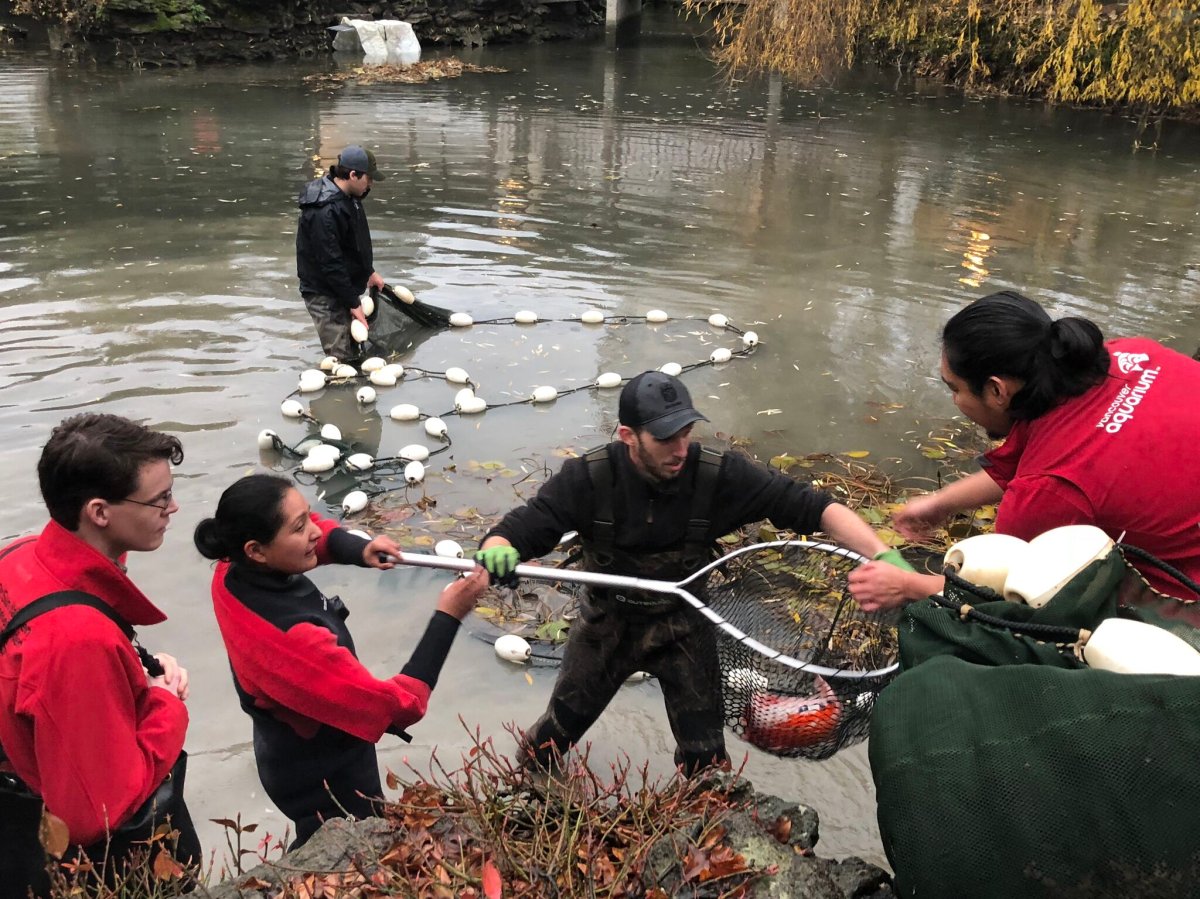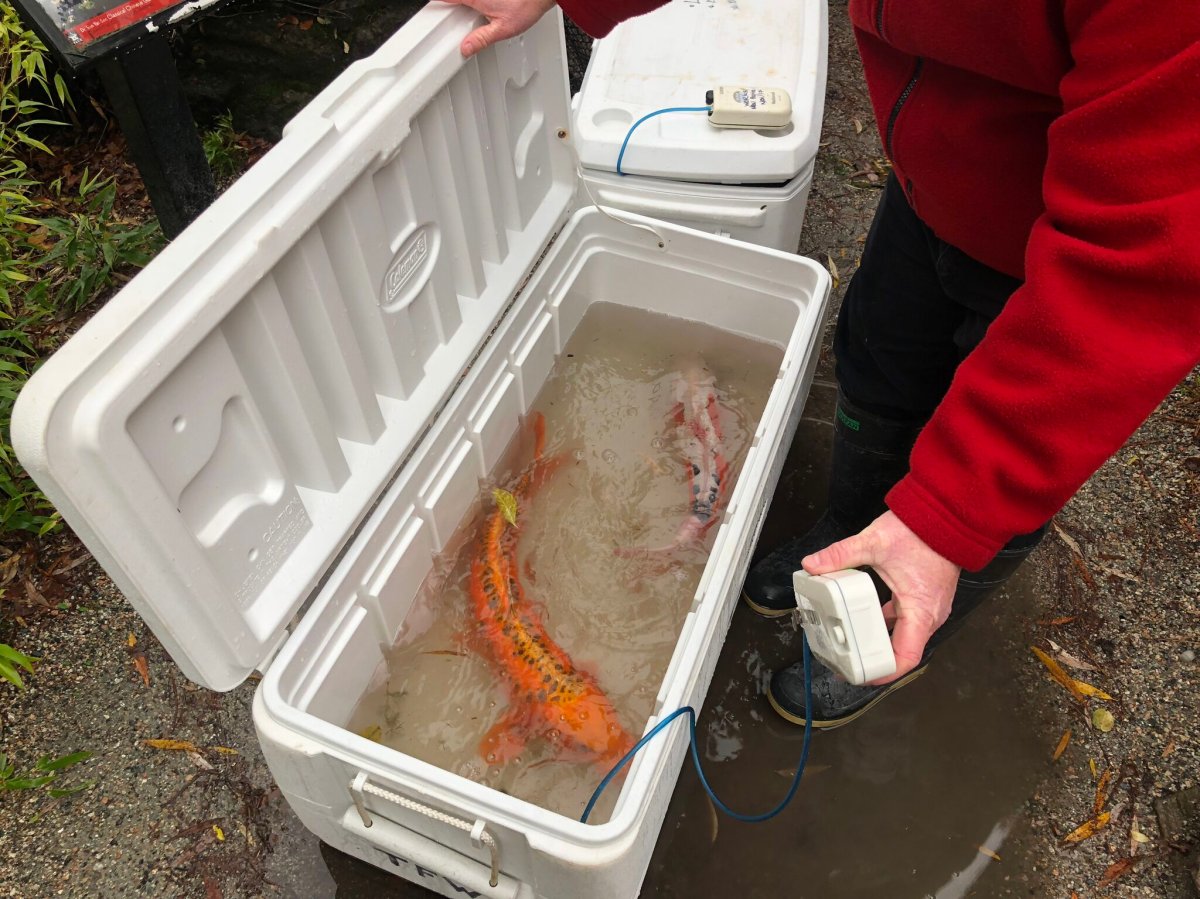Her fate was unknown until now, but it has been confirmed that the 50-year-old koi which lived in the Dr. Sun Yat-Sen Garden in Vancouver was killed and eaten by the otter.

“Madonna is certainly one of the kois that has a lot of emotional association and attachment for anyone that has been with the garden,” Vincent Kwan, the executive director of the garden, said. “Anyone in the community knows Madonna so a lot of people are still trying to digest what has happened and it’s certainly very emotional. People on our term express great deal of sadness.”
It is believed the otter, which was first spotted in the garden on Saturday, Nov. 17, ate 11 of the resident 14 koi.
It has not been seen since Saturday, Nov. 24.
“As of this morning, there is still no sight of the otter. We feel like, ‘Elvis has left the building,’ and he or she is no longer on sight,” Howard Normann with the Vancouver Park Board told reporters Thursday. “So we’ve removed our traps and removed the koi as of yesterday. So right now, it’s status quo, we’ve lowered the pond, removed the remaining fish and there’s no sign of the otter.”
The last two remaining adult koi, along with a number of juvenile koi, have been transferred to the Vancouver Aquarium. One was already transferred on Sunday, Nov. 25.
WATCH: (Aired Nov. 19) A hungry river otter has ended up in the Vancouver’s famous Dr. Sun Yat-Sen Classical Chinese Garden and has been feeding on the valuable fish

The Dr. Sun Yat-Sen Gardens has now reopened to the public. Normann said if anyone spots the otter, they should take a photo and send it to the park board.

Get breaking National news
“We’re installing some grates on both our doors – we’re going to have automatic door closers,” he said. “We’re putting a plate along the bottom to prevent the otter or any of the otter’s friends from re-entering the garden. We hope that will solve that issue from them coming back into the garden. That’s the only source we’ve found of access.”
Officials are still not sure where the otter came from, but believe it was likely a resident of False Creek before it took up residence in the garden.
“The unique part here, walled garden, 20-foot walls, limited access – how the otter figured this place out, we’re still not sure,” Normann said.
WATCH: (Aired Nov. 23) Vancouver Park Board brings in expert to deal with hungry otter

There are still concerns the otter will try to come back.
“If it were to get in, if it’s coming from a different way we don’t know about, there’s really nothing for it to eat,” Normann added. More than likely, it will come back. They’re habitual, so if they find a food source, they rotate through.
It’s not known when the koi will be returned to the garden but Kwan said that decision will be made in time.
WATCH: Dr. Sun Yat-Sen Gardens reopens

“It’s very emotional, the koi, they are very important as decorative elements in the garden but going beyond, being beautiful, they do have values and significance from a cultural perspective, especially in Chinese culture,” he said.
“I’d like to see that through this process, it brings greater awareness about animals, preservation and also the cultural meanings behind elements like the koi, which is something that can be positive out of this event.”
“At the end of the day, they have symbolic representations that ties to things that are related to preservation, transformations, happiness – things that are very abstract but they’re elements that [are] ingrained in the Chinese culture.”
The garden is looking to replenish the adult koi stock in the garden and Kwan said there are many people offering to donate koi.
“We will work with the Vancouver Aquarium to see and determine what would be the next step forward,” he added.




















Comments